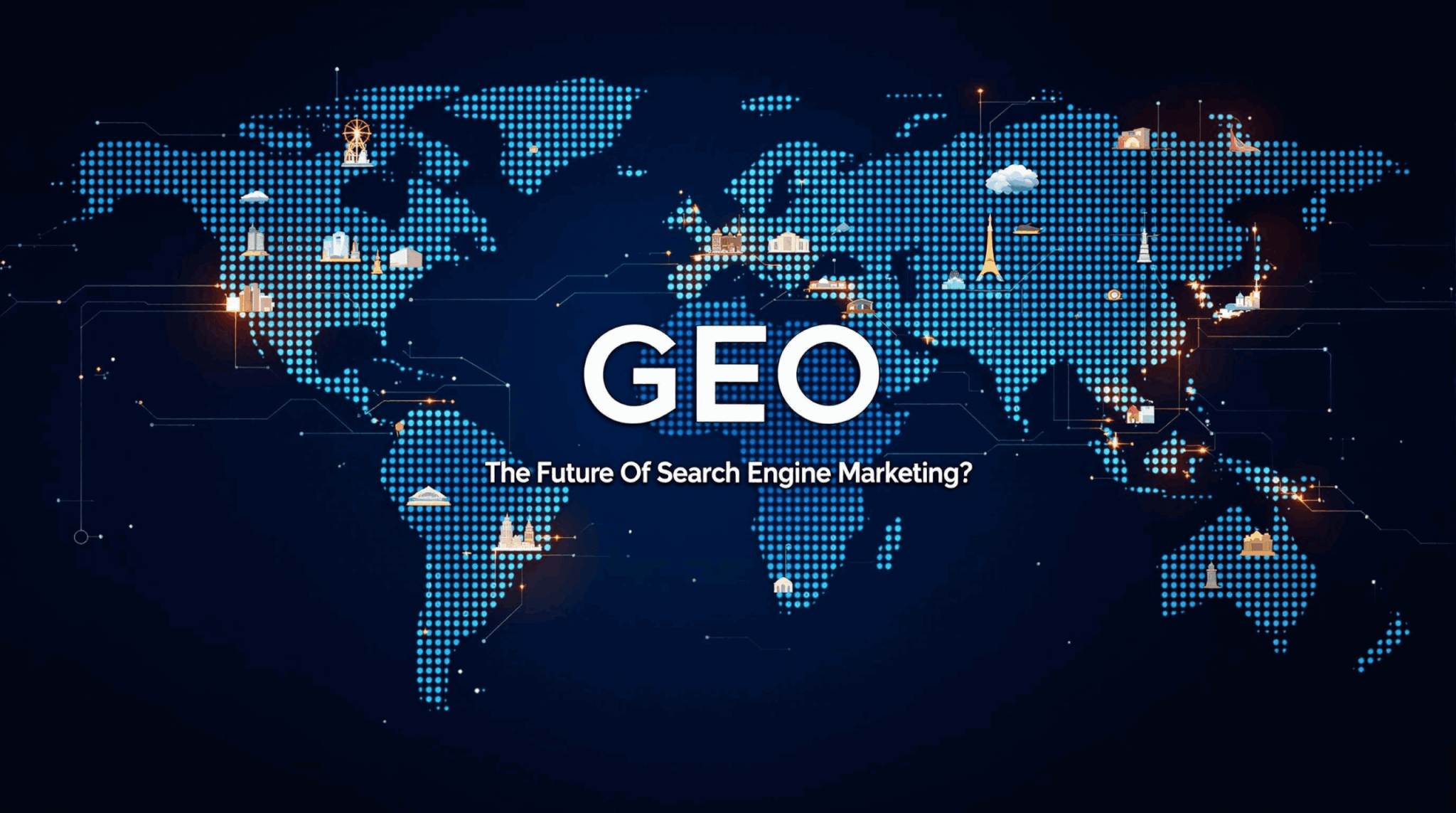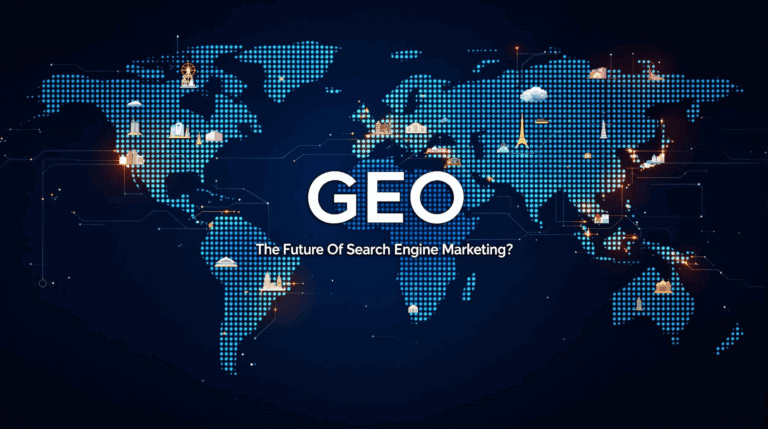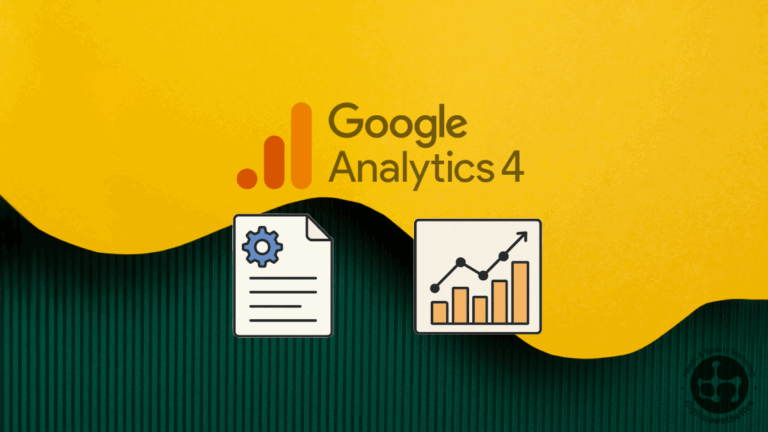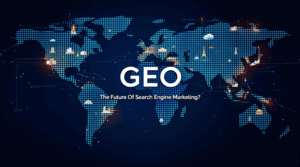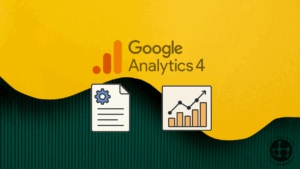You may have heard of SEO, short for Search Engine Optimisation. You know, when you use strategic keywords and have incredible content that urges Google to catapult your website to the first page of its search results (to vastly sum it up).
But have you heard of GEO? Short for Generative Engine Optimisation. With the rise of AI-driven search engines like OpenAI’s ChatGPT and Google’s Gemini, you really ought to know about it. That is why we are here, to help your aesthetic clinic soar and shine online.
And when it comes to GEO, AI-powered local search recommendations are projected to drive 30% more foot traffic for businesses this year. So, let’s learn a bit more about it to help your business stay at the very top.
Why GEO Matters, Let’s Look At Some Numbers
What is Generative Engine Optimisation? It basically is a new idea that focuses on creating content suited for AI search engines. Unlike regular search engines (i.e. Google, Bing, Yahoo, etc.) that show a list of links, AI search engines give direct answers right at the top of the page by pulling together information from different sources. And these answers can be short or detailed, are usually written in a friendly, chat-like way, and are super convenient.
So much so that over 30% of global internet users now interact with AI-driven tools like ChatGPT on a regular basis, with around 72% of users preferring AI-generated answers over traditional search links for general knowledge queries. Probably because these AI-search engines create highly relevant, contextually aware responses based on the input provided. Not to mention, about 68% of users trust AI-generated search summaries as much as human-written content.
But here is what you need to know. The goal of GEO is to create content that AI can easily find and use in its answers. It is not just about being seen per se, it is about making sure the content is written in a way that helps AI turn it into useful, interesting replies. And just like SEO, it involves using techniques like choosing the right keywords and writing in a natural and clear style, but it also involves making sure the content matches how AI understands and shares information.
SEO vs GEO
Search Engine Optimisation and Geomarketing Optimisation have some important similarities. Both use data to guide decisions and both aim to reach the right people at the right time. SEO does this by targeting users based on their search habits, while GEO focuses on where people are or have been, using location-based data.
When it comes to local search, GEO and SEO overlap. Local SEO boosts visibility through location keywords and Google Business Profiles, while GEO tools help find areas with high demand for targeted marketing.
And both also make use of digital tools to track performance (because staying intune with what works and what does not is detrimental to your online success). SEO uses tools like Google Analytics and SEMrush, while GEO uses mapping tools like GIS, Google Maps APIs, and Esri to analyse location data.
Understanding How GEO Works
Generative Engine Optimisation (GEO) focuses on creating content that works well with AI’s search algorithms. The basic key components are:
Natural Language Processing (NLP) Integration
AI programs like to see content that is conversational. When users search “best skincare routine for acne,” for example, AI is aware that the content should simply respond to this query naturally. And since 70% of voice searches contain conversational queries, it makes it all the more important to write the content so that it sounds and reads natural.
Topic Authority
AI-driven search engines reward content that shows deep expertise and knowledge. This means that content needs to be detailed, well-researched, and cover subjects in depth. If you think about it, it makes perfect sense. Why would AI grab information from your website that mentions just one sentence on a topic, instead of another website that offers three full paragraphs? However, having said that, no, not every page on your website needs to be exhaustive.
Content Structuring For AI Processing
How you structure your content matters, always. Using clear headings, bullet points, and summaries makes it easier for AI to pick up important information and provide concise, relevant answers. Research also shows that well-structured content can increase visibility by 40% because AI processes it faster and more accurately. The more you know.
Engagement And User Intent
AI search engines are now better at figuring out what people really want when they search. This means GEO requires you to create content that matches what users are actually looking for. For example, since 90% of users prefer content that answers their questions quickly and clearly, making sure your content does that can help boost engagement and improve your rankings.GEO may be a subtle art, but it is far from rocket science. It is a smart, structured algorithm that you can absolutely master.
What Does This Mean For Your Aesthetic Practice?
The million dollar question (or according to the current exchange rate, the £800,000 question we have all been waiting for), how does it affect you and your practice?
So, it is important to note that GEO is already making a big impact across many industries, and the aesthetics sector stands to benefit the most. And according to a study by HubSpot, 79% of marketers saw better conversion rates by using AI tools for content creation and optimisation. That is a pretty impressive stat. Probably because AI-driven search engines are changing how people search for aesthetic treatments. For example, someone searching for “best Botox treatment near me” may get an answer directly from an AI, rather than being directed to multiple websites. This, once more highlights just how critical it is for aesthetic practices to adjust their content to meet the needs of AI engines.
Therefore, by using GEO strategies, your business can stand out by making sure your content is both helpful and AI-friendly.
Perhaps It Is Time To Take Action
The reality is, 75% of digital agencies have introduced GEO services to meet the growing demand for AI-optimised content and 63% of marketers are prioritising GEO in their content strategies.
Why? Because 78% of businesses have adjusted their content marketing approaches to align with AI-driven search engines and to stay ahead of the competitive market out there.
So, the real question is, is your aesthetic practice next on the list to embrace GEO and all the benefits that come with it? Remember, Generative Engine Optimisation represents the future of digital marketing, especially as AI-powered search engines like ChatGPT and Google’s Gemini become more prevalent and ALL aesthetic practices must adapt to this shift by optimising their content for AI-generated responses, otherwise your practice may be left behind.
With the right GEO strategy, your business can enhance its visibility, build authority, and ensure its services are featured in the AI-generated answers that users are clearly increasingly relying on.
